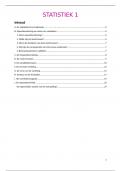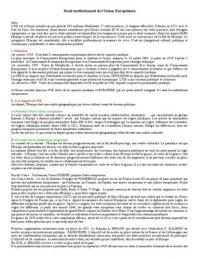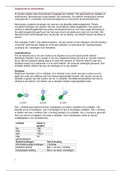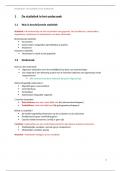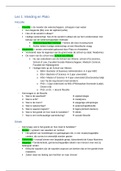College aantekeningen
General Biology 1 ; Lecture Notes
- Vak
- 01:119:115
All notes taken during General Biology 1! Includes tables, handwritten portions when necessary (specifically examples), highlighted/color-coded information (what you need to pay attention to), and all outline information required for workshop. I earned 102% on Exam 1, 93% on Exam 2, and 102% on the...
[Meer zien]






